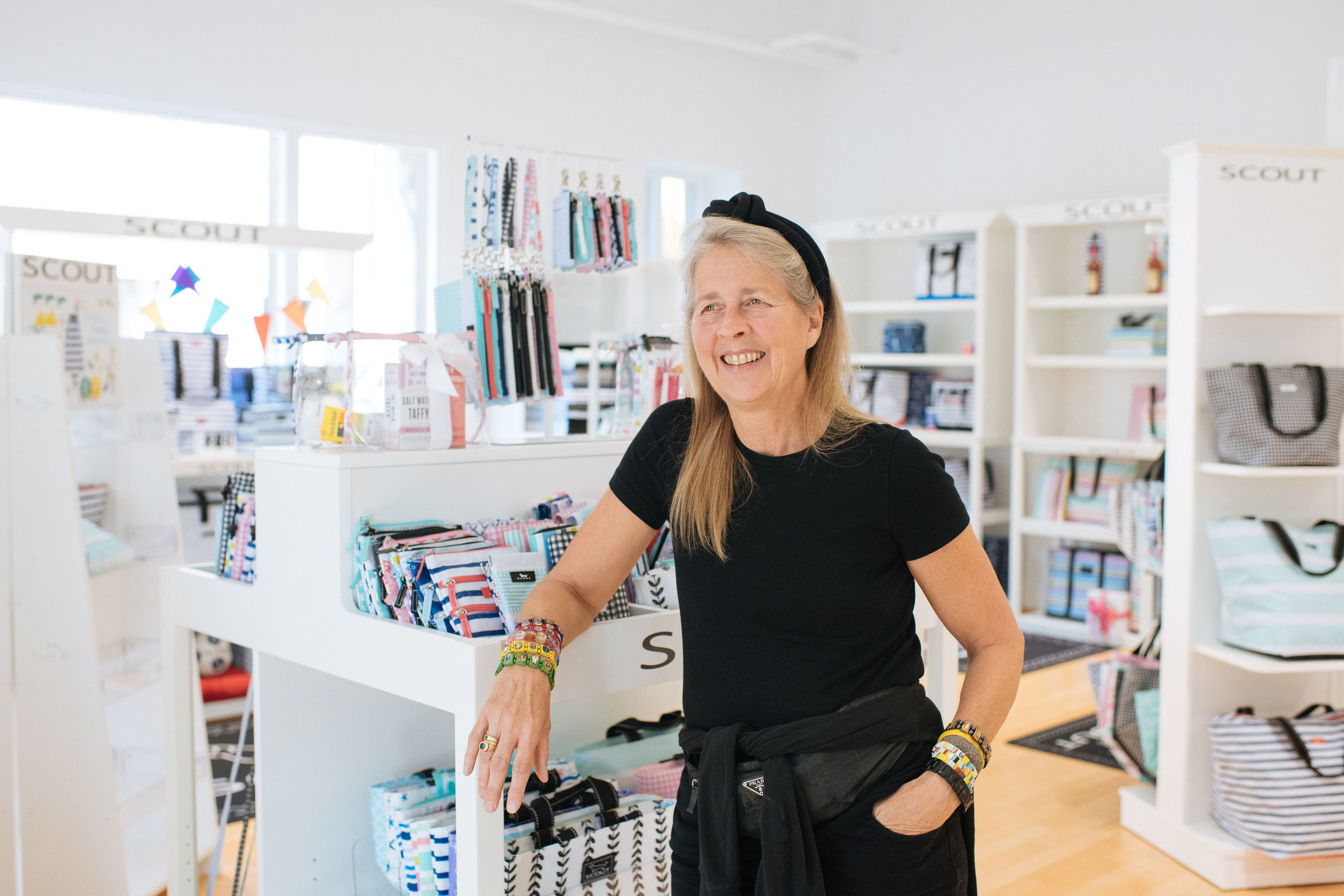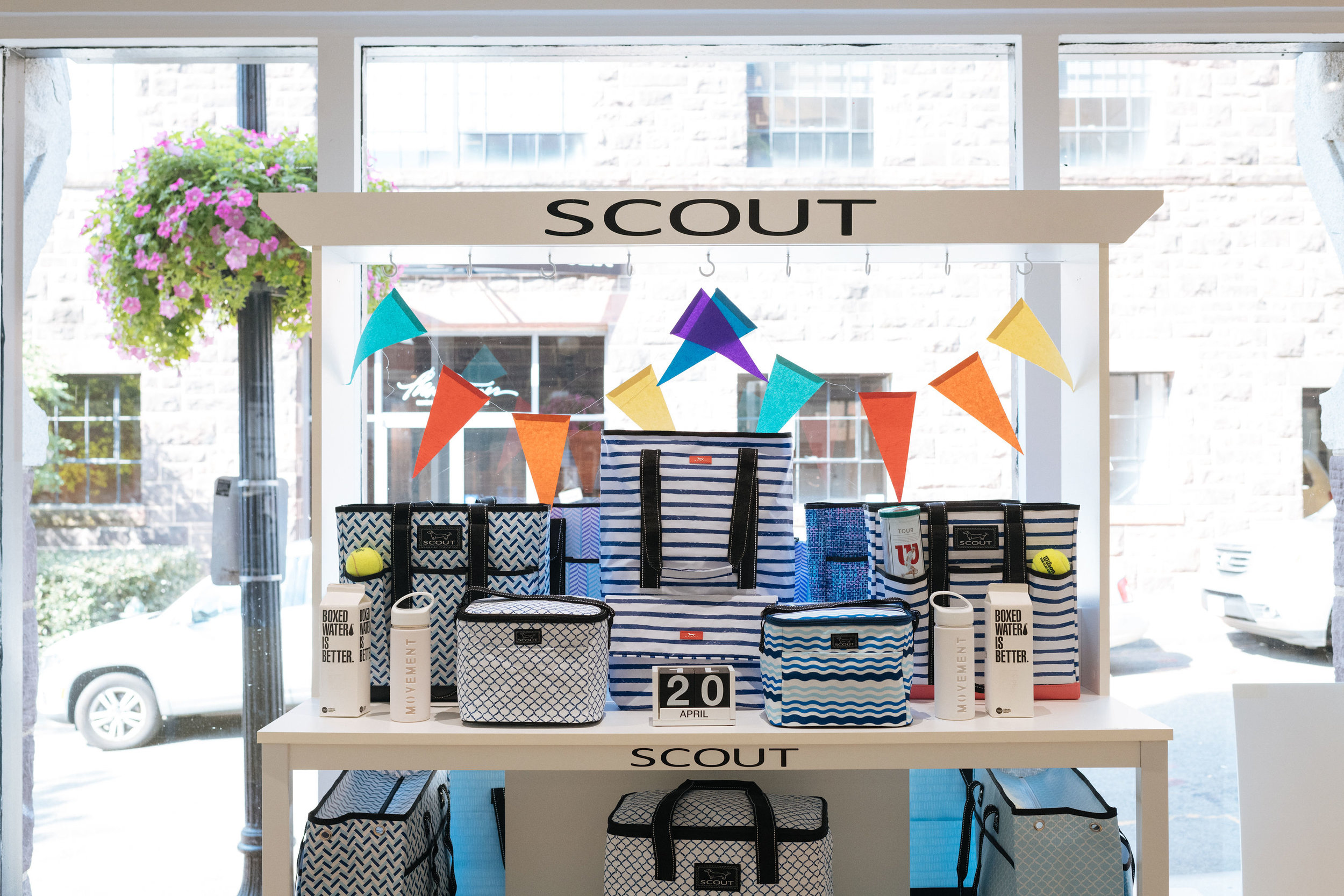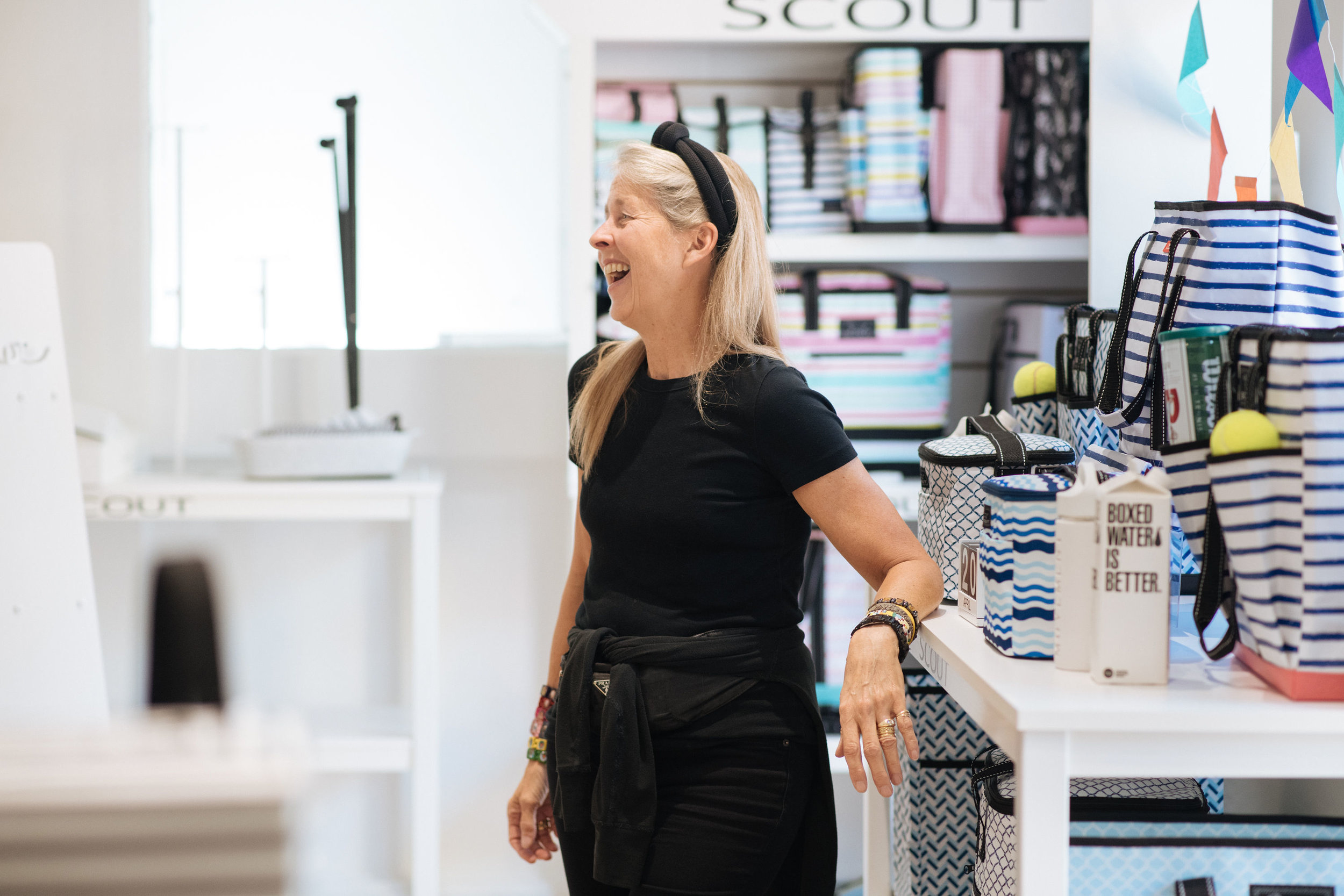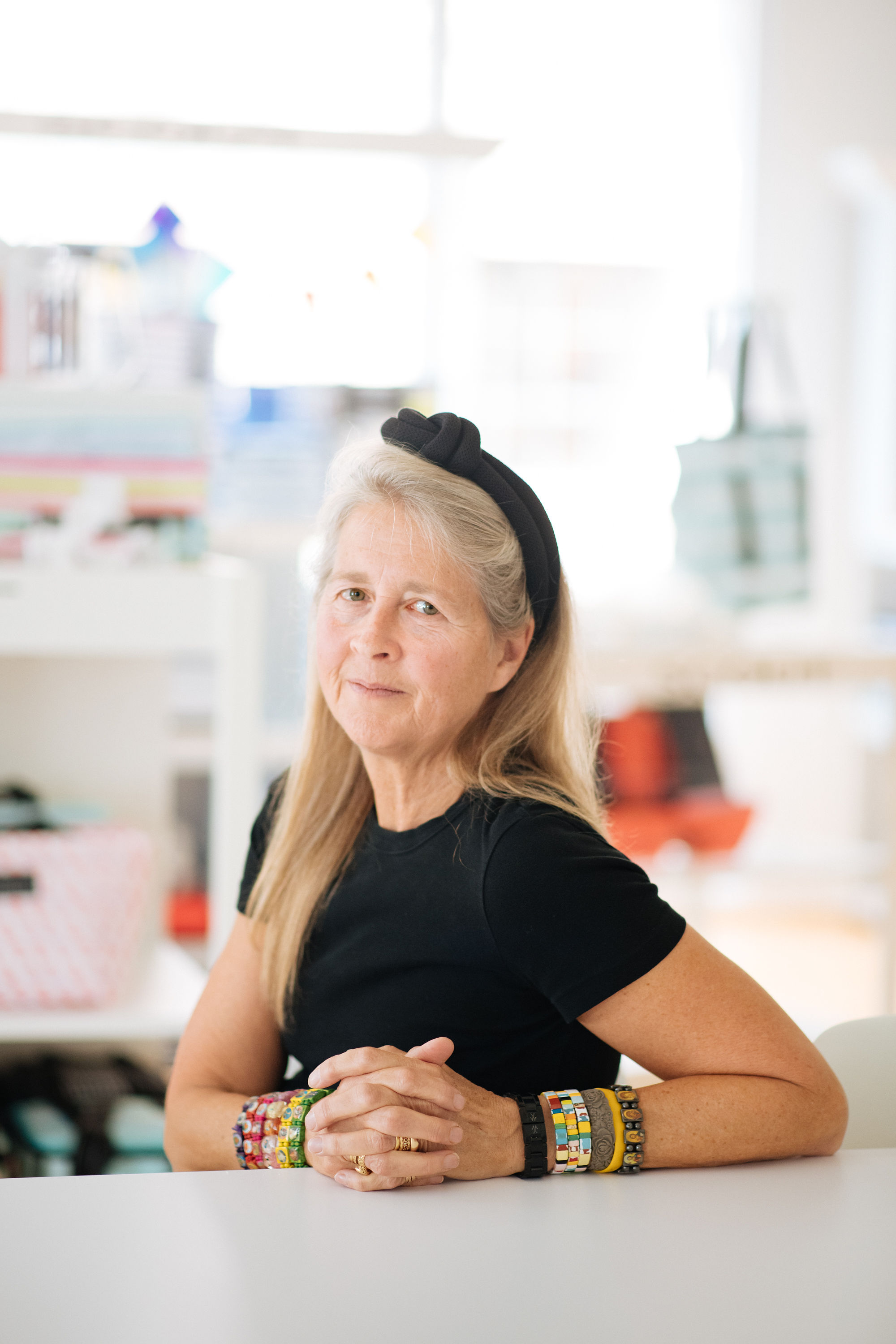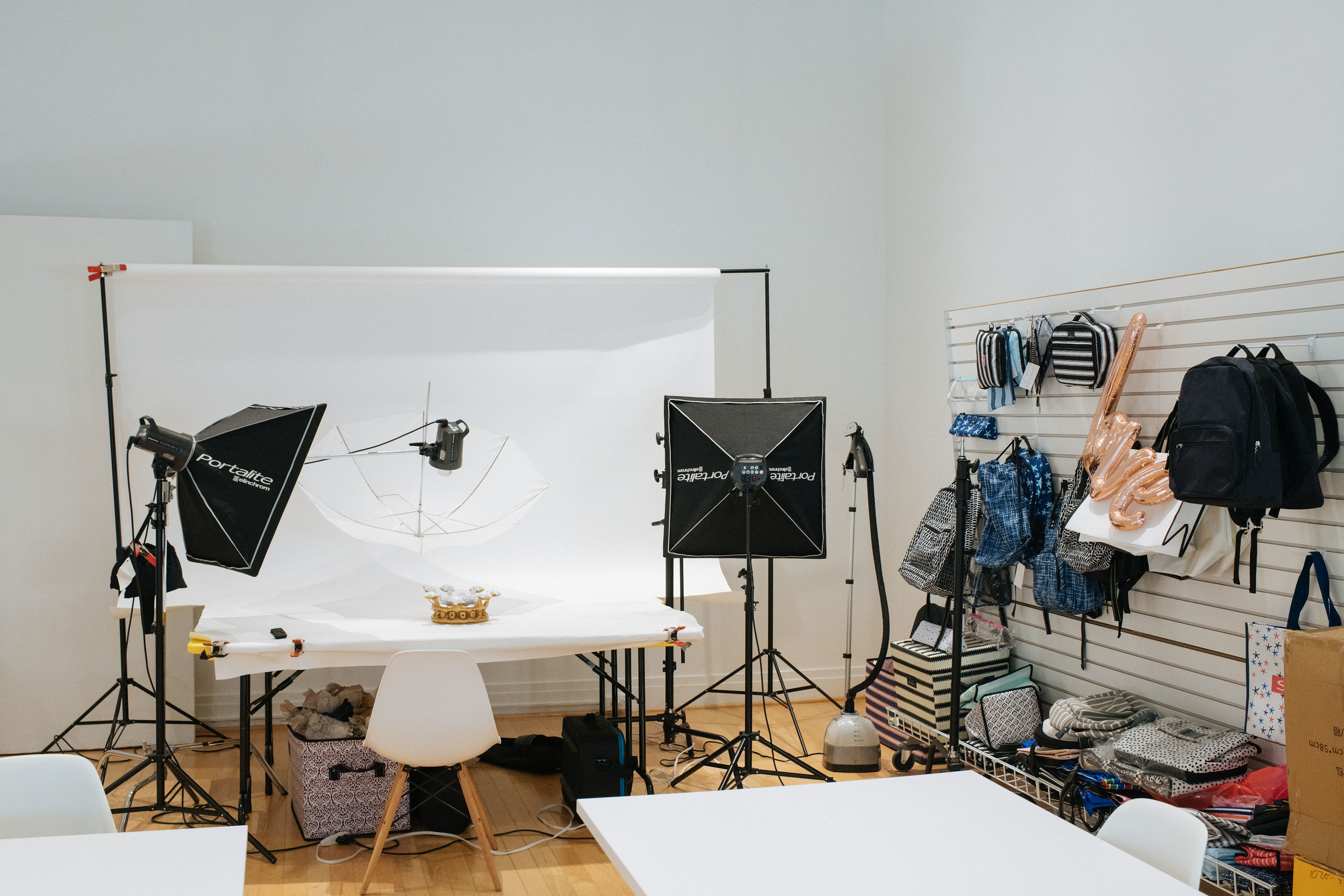‘We Had to Get On the Map By Being Ridiculous’
Outside of Pearl River Mart in New York City, Deb Johns bought 20 ugly, plaid bags the street vendors used for $3.25 each. They smelled like petroleum and held a massive amount of merchandise.
‘All of my friends had little kids, everything was messy, and they were packing a tremendous amount of crap into a big bag for vacations. I put these bags in front of them in DC and they were like, ‘A bag that holds three small children? We’re buying!’ I sold them for $20 each, and within a few hours, they were gone. My husband was like, ‘Those ugly, smelly bags?’ Yes—because they weigh nothing and hold everything.’
At the time, Deb was running a DC pop-up shop called Fifi with a French partner, but her roots were in New York City.
She’d graduated from Cornell with a degree in textiles and design, and spent her early career in ‘the only destination’ for the fashion and design world.
‘It was like plugging the plug into the socket. I felt like the missing puzzle piece was there when I was in New York.’
Deb met her husband through mutual friends, and the two began dating long distance. Ben was an entrepreneur and native Washingtonian, and they eventually decided DC was the most logical place to meld their lives. Deb was moving out of trend forecasting, and had a base of loyal clients who followed her as she started her own consulting business.
‘I kept the place in New York for many years. Ben and I had a weekend marriage, except for vacations and holidays, for 15 years. We had four kids in that time, and I was going back and forth between New York and DC. One year I went 26 times.’
Navigating her travel schedule while raising four children became increasingly challenging for Deb, who grew up in a household where her stay-at-home mother had never received any cleaning or childcare help. She learned to ask for what she needed, while shifting much of her business to high-profile friends in DC who needed professional styling, and launching Fifi.
As the shop became a local think tank for design, Deb was asked to serve on two color board panels for design forecasters in Asia and Europe. It was on that trip in Milan—a world away from her recent discovery at Pearl Street Mart—that she looked over and saw yet another ugly, plaid bag.
‘It was sitting on the counter, with a leather bottom and leather handles, for $450. I said to the guy, ‘I need to buy this.’ He said, ‘No, it’s so ugly.’ I said, ‘I realize it’s ugly but I really need it.’ I called Ben and I said something’s happening. The rest was history.’
Deb and Ben launched SCOUT Bags that same year out of Georgetown, with three checkered bag styles. She was struck by the simplicity of the enormously popular gray-and-white checkered bags from New York designer Peri Wolfman—on the cutting edge of neutral styling at the time—and wanted to follow suit.
‘We made this crazy display in Atlanta at the gift show with an airstream, and in New York we created this whole house made out of all this SCOUT stuff. I had a hot glue gun in my hand for two weeks. We had to get on the map by being ridiculous because we had so little to show.’
Ben discovered they could print on film, and the film could be attached to the fabric; thus, their printed pattern was born. From there, coated cotton enabled them to mold shapes, and their fabrics expanded further. Weekender bags and coolers were added to the inventory, followed by fashion fabrics like velvet and denim.
‘It became fun to think what we could do next, and allowed us to expand on the notion of what is your everyday, or your weekend, or your travel, or your schlep bag for your life.’
As the product expanded, so, too, did the office.
‘We were in this little townhouse and I remember walking in one day and our intern was sitting on the toilet in her clothes and she said, ‘It’s the only quiet place.’ We found other space and I became more integrated in the business.’
Nearly 15 years since its inception, SCOUT has moved both physically and philosophically—from a gift story to a true fashion product.
‘What you realize is most women want to carry a pretty bag. It became a much clearer equation. As we grew, we realized there was a potency in the fashion being the product, and we wanted the flexibility to land almost anywhere. An accessory in a boutique, a wine bag in a gourmet market, or a gift bag on a really cool display at a Hallmark store—Ben and I saw that the gift and fashion markets could both influence a much better product. We find our bags in the wildest places now.’
Deb credits much of SCOUT’s success to meeting women where they are—rooted in an understanding that they all shop differently.
‘I always say to my clients, ‘Girl, keep your wallet in your bag when you’re on vacation; that sarong doesn’t work on this street!’ But that’s when women have time and are relaxed. We try to fit into the busyness of their lives with the product, but also the way we offer it in all different venues. Some women sit in the darkness of their bedroom while their husbands are sleeping, tapping away on a website. The reality is most people don’t shop or consume in bubbles. They do it in their daily lives as things start to hit them from all sides. We try to be an oasis of calm.’
SCOUT’s designs honor that intention, recognizing the importance of negative space to balance color.
‘If you see a pink dress in the window, you go, ‘I have to have that dress.’ You end up buying the black dress once you get inside because you get practical when you’re paying for something, but that pink gets you into the store. It makes you believe there’s something new. Women feel excited when they see something evolving and revolving.’
DC may not be known for its design, but Deb says the city has proven to be the perfect place for mid-range fashion.
‘We love gingham, for example, but our customer may not get there as soon as the chick who’s walking in Paris and sees it in the window of Versace. We’re a much more edited town in the world of design, but there’s a market with women who are very educated and worldly, but don’t put shopping at the top of their list. You just have to make it easy for them and pay attention to their tendencies. Nothing in fashion is new. Everything is recycled, and knowing those cycles informs what we do.’
Deb says she’d love to open a flagship, concept store in Georgetown when the time is right, but is cognizant not to compete with other stores that already carry the SCOUT product. For now, she’s content to continue building momentum, and offering the women of Washington and beyond the choice to own fun, unique and useful bags.
From an Expedia yacht in Seattle, to the back of a car, Deb sees the fruits of her vision everywhere she goes.
‘It’s become multi-generational. I still have people showing me their first SCOUT bag, with the original check. One woman’s daughter was moving to Boston and her car was packed with 10 4 Boys—literally the history of our 4 Boys. I think some of my friends think I pick a cute stripe and leave, but there’s so much more to the creative—and the SCOUT story—than that.’
And yet, Deb says the core of the brand will never change—born for that trip to Pearl Street Mart 15 years ago.
‘As long as people are walking the planet, they need a big bag to put crap in.’
